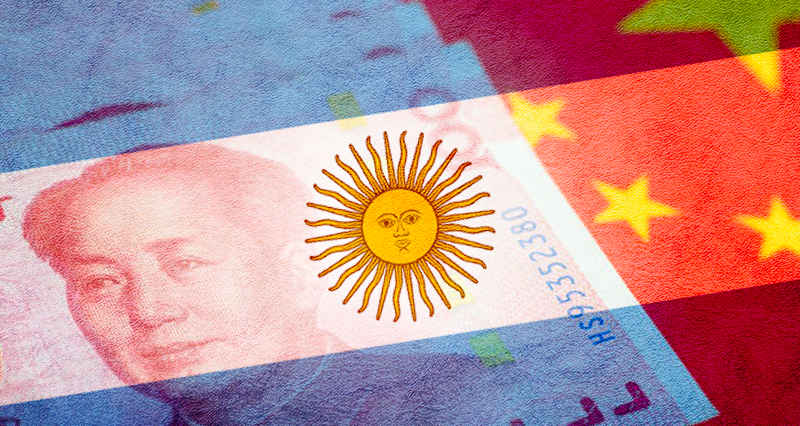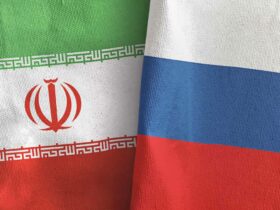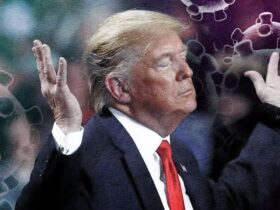By Prof.Dr. Fernando Esteche *
Short history of contemporary Sino-Argentine bilateral relations
There are several milestones that we can list to contribute to the understanding of relations between China and Argentina. They reach even further back than the consolidation of the Shanghai Cooperation Association and the launch of the One Belt One Road (BRI) or New Silk Road initiative, symbol of the Chinese foreign policy. Both countries had already expressed their willingness to associate in response to mutual interests in the deployment of influence, consolidation of the supply chain, and expansion of trade and infrastructure.
During the Néstor Kirchner government, the foundations were laid for a comprehensive strategic association between China and Argentina through the signing of a Memorandum of Understanding in 2004.
Already with Cristina Fernández de Kirchner in the presidency and as a continuation of the national plan in 2008, agreements were signed in areas such as trade, investment in energy and cooperation in infrastructure. These agreements laid the real foundations for further bilateral cooperation.
In these agreements, infrastructure development agreements stand out, such as the agreement for the construction of two hydroelectric dams in the province of Santa Cruz: The Néstor Kirchner and Jorge Cepernic dams, located on the Santa Cruz river, were large-scale projects that had financing and backing from China.
The sides also committed to the modernization and expansion of the freight rail network: An agreement was signed for the renewal and expansion of the freight rail network in Argentina, with the aim of improving logistics efficiency and promoting trade.
In 2013, Xi Jinping took office in China and relations were consolidated. China has sought to expand its influence in Latin America, including Argentina, as part of its Belt and Road initiative.
During Xi Jimping’s visit to Argentina, a memorandum of cooperation was signed that laid the foundations for a comprehensive strategic agreement.
In 2015, the China-Argentina Comprehensive Strategic Partnership was established, further strengthening bilateral ties. It must be considered that the Kirchner government was going through its last year in power.
In terms of infrastructure projects, the following stand out:
The modernization and expansion of the Belgrano Cargas Railway: An agreement was signed for the renewal and expansion of this important freight railway in Argentina, with the aim of improving connectivity and freight transport.
The construction of a nuclear power plant in Argentina: The construction of the fourth nuclear power plant in Argentina, the Atucha III Nuclear Power Plant, was agreed with Chinese technology and joint financing.
Trade between China and Argentina has experienced steady growth during Xi Jinping’s tenure. In 2013, bilateral trade reached 14.5 billion dollars, and in 2020, despite global economic challenges, it reached 14.8 billion dollars.
According to official data, 21% of the imports made by the South American country in 2022 originated from China, with purchases that amounted to 17,502 million dollars.
Argentina’s main exports to China include agricultural products such as soybeans, meat and fish products. On the other hand, China exports manufactured goods, machinery and electronic products to Argentina.
The signing of the sanitary protocol in 2015 allowed the start of Argentine beef exports to China, which has contributed significantly to the growth of trade between the two countries.
These agreements take place within the framework of the concurrent wave of popular national governments in all of Our America.
Relations will slow down and cool down during the neoliberal government of Mauricio Macri, which will also coincide with a wave of neoliberal restoration on the continent and North American redeployment in the region. Especially with regard to issues of infrastructure, energy and technology, the agreements will be cooled down or directly suspended, only sustaining the continued growth of trade.
Argentina as part of the Silk Road
The signing of the Memorandum of Argentine adherence to the One Belt One Road Initiative was carried out in February 2022 between the Argentine Foreign Minister Santiago Cafiero and He Lifeng, president of the National Development and Reform Commission of the People’s Republic of China.
The official Argentine communiqué will be so auspicious regarding the finalized agreement that it will agitate the internal aspects of the government itself to immediately operate the neutralization of the effectiveness of said agreement pondering its genuflection to North American interests; The great architect of these maneuvers was the super-secretary for special international relations Gustavo Beliz and the Chief of Staff Juan Manzur.
The agreement establishes that the financing for strategic infrastructure works in Argentina will be implemented in two tranches, one already approved for 14 billion dollars, under the mechanism of the Strategic Dialogue for Economic Cooperation and Coordination (DECCE); and a second package, for 9,700 million dollars, that Argentina will present in the Ad Hoc Group created between both countries to start the work after joining the Strip and the Silk Road.
As we already know, the Belt and Road Initiative aims to promote cooperation and connectivity between countries through two main components: one of a terrestrial nature (the “Economic Belt of the Silk Road”) and the other transoceanic (the “Maritime Silk Road”). It is an initiative to develop a platform to stimulate trade and investment, market integration and economic cooperation between regions. In the medium term, the Memorandum seeks to obtain concrete results that will promote bilateral trade in goods and services and specify investments for the productive sector and for the development of technological capacities.
At the meeting, China’s support for efforts to preserve Argentina’s economic and financial stability was underscored, assessing the renewal of the 2020 SWAP Agreement. The Chinese side stated that it was willing to study projects for the channeling of special drawing rights (SDR) from the International Monetary Fund and expanding their use in order to strengthen economic development, financial stability and bilateral trade.
In the same way, the official communiqué of that time highlights that the commitment of both countries to multilateralism, the implementation of the 2030 Agenda was reaffirmed, and they agreed on the relevance of the G20 as an outstanding forum for international economic cooperation, assisting in an economic recovery. sustainable and balanced in the face of the COVID-19 crisis; all reasonable formal questions that constitute declarations of principles that the Argentine counterpart will immediately call into question due to its firm alignment with the United States.
Obviously there are Argentine sectors, mainly the Argentine ambassador in China, who are very exultant and hopeful with these agreements that include technology transfer and financing under special conditions for the construction of the nuclear power plant, installation of a manufacturing plant for 8×8 armored vehicles for military and the acquisition of third generation JF-17 aircraft; 5G technology and swaps for the Central Bank, all this as a possibility without contemplating the reaction of the United States or the Argentine colonialist sectors that sabotage such a vade mecum.
A first-rate trip that is not a geopolitical twist
Despite the deplorations or celebrations, depending on the case, caused by this trip to China by the main political figures of the Argentine ruling party, we must say that we do not believe it is a geopolitical turn or a grimace of autonomy. Far from that, we believe that this falls within the trend of the affirmation of the government’s monetization fund and eventually of the succession if that role were to come to them.
There is a domestic objective that has to do with the two main figures of the governing alliance agreeing on the candidacies, which at first glance and because of this trip seem to be more than announced, it is clear that it results in an accolade from the powerful vice president Cristina Kirchner with the economy minister Sergio Massa who heads this Argentine mission and who is accompanied by the son of the former presidents Kirchner.
Sergio Massa, with undeniable relations with the US State Department, even friendly relations with the person in charge of the Western Hemisphere, Juan González, is not a man who is going to romanticize multilateralism or star in pro-Chinese autonomist grimaces for free. But he is a man with blunt pragmatism.
The presence of Pesce, the president of the Central Bank, a figure questioned until weeks ago for his handling of currency control, in the small entourage shows that one, if not the main of the objectives has to do with swaps and with the search for resources to alleviate the Argentine currency crisis and the need to build reserves.
Brazil has been the one that has led the way in Nuestra América, demonstrating what are the levels of autonomy tolerated by the Western hegemon without this resulting in suffocating tension or a political or economic crisis. But of course, Brazil is among the top ten economies on the planet, is chaired by a statesman and is aware of and commands its own foreign policy and trade. Argentina, on the other hand, does not control its foreign trade, nor does it have the capacity to control its financial entities and is presided over by a man who is repudiated by his own government alliance, aware of spending the last few months as president.
However, and despite Argentina’s gestures in bad taste, for example, in an indecent alignment in the case of the proxy war in Ukraine, or the media announcement after Fernández’s interview with Biden about “freezing” relations with China; China has been very firm in highlighting its interest in incorporating the South American country into the Asian Investment Bank, its willingness and support to incorporate it into the BRICS Bank and its support in the IMF board of directors (China is the second largest partner after the United States ) in addition to the willingness to widen the swap. Obviously China is not a disinterested benefactor and both the provision of swaps import interest and indebtedness (freely available currencies are 8% interest above the international rate) with China and with any other creditor the weighting of what is also important own in terms of business or development in general.
The application of the SWAP for China results in concrete advances in trade association. For Argentina it is just a relief that allows it to keep dollars in its reserves. With the execution of the SWAP, it is sought to stop the outflow of dollars in imports, the replacement of currencies will be made by virtue of the extension of the currency exchange agreement that Argentina and China signed last November. The new agreement allowed the South American country to dispose of the equivalent of 5,000 million dollars as freely available reserves and increased the Chinese participation in the gross international reserves of the Argentine Central Bank to 48%.
All the other package that is announced as Chinese investments in Argentina in infrastructure, some of them are very likely to advance (Belgrano cargo, bridges and logistics in general) as long as they do not strategically affect US interests (despite which the modernization project del Belgrano cargo was monitored and challenged by the United States and frozen by Cafiero and Fernández which caused a fight between Massa and Cafiero); but others are not only improbable but would be constituting a gesture of sovereignty that this government has no oxygen to try.
The construction of the Kirchner and Cepernic dams is highly improbable, let alone the Atucha III nuclear power plant.
The result of the trip will be the probable consolidation of a unique presidential formula in the ruling alliance, an oxygenation for the BCRA reserves until the elections, surely the guarantee to be able to trade with Brazil regardless of the dollar (this would be guarantor by the Chinese Development Bank) and some infrastructure works depending on the continuity or not of the political administration. Because Chinese intelligence knows very well that the obedient colonialism of this government is timidly multilateralist compared to the genuflecting Westernist colonialism of the current opposition that is openly pro-American.
* Fernando Esteche is PhD in Social Communication (UNLP), full professor of International Relations (FPyCS – UNLP), professor of Contemporary Latin American History at the University of Plata, Buenos Aires and the director of PIA Global.

















Leave a Reply